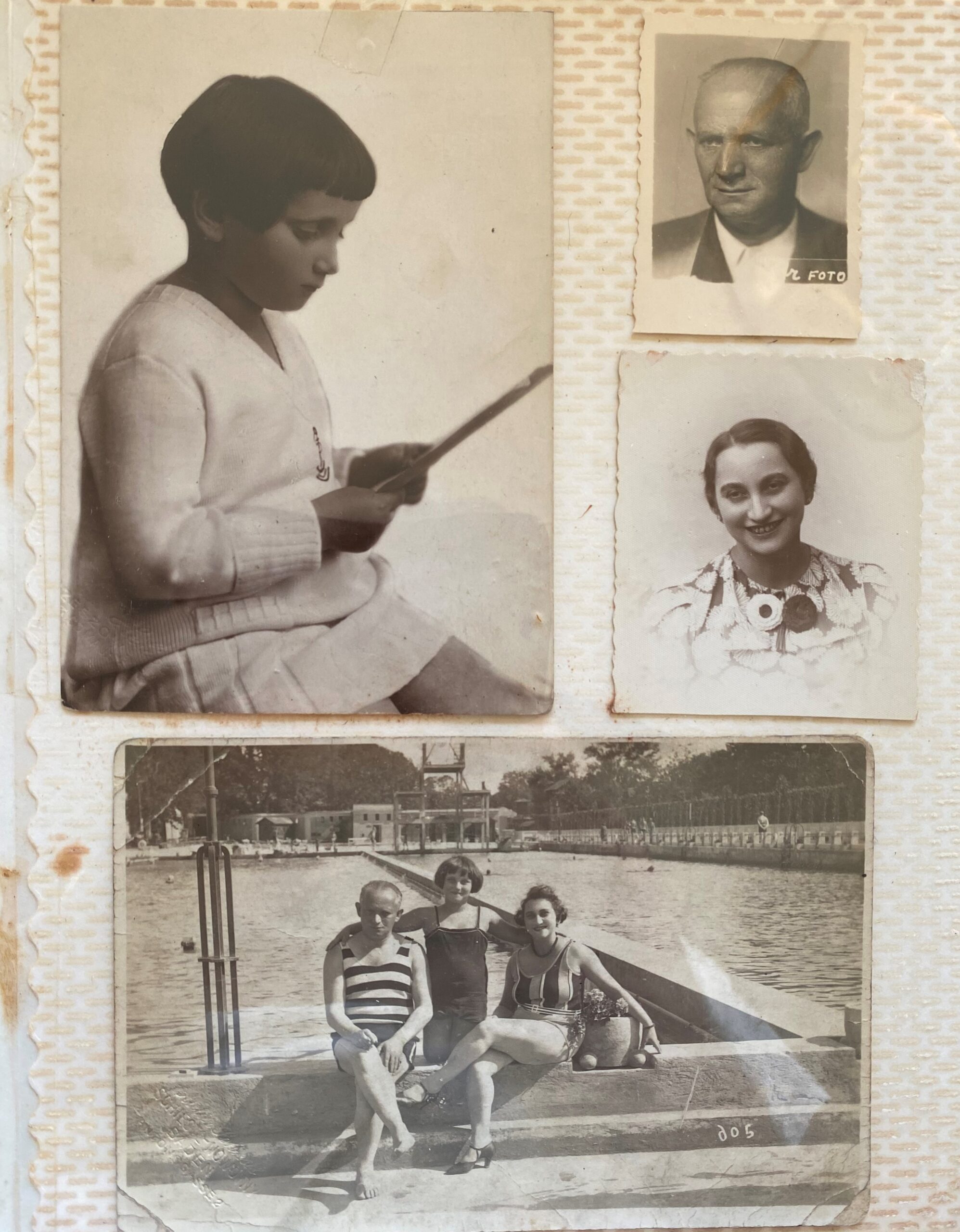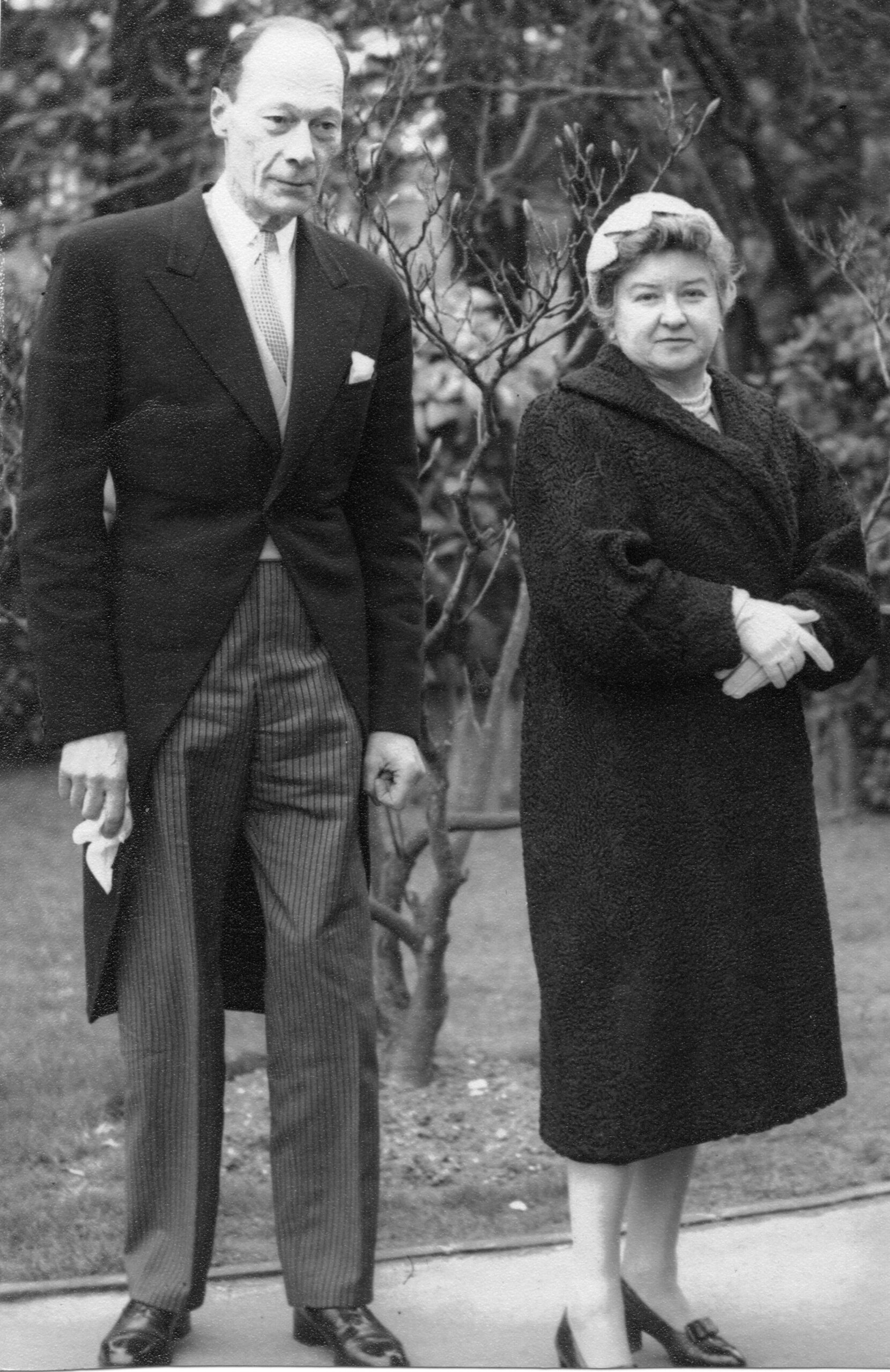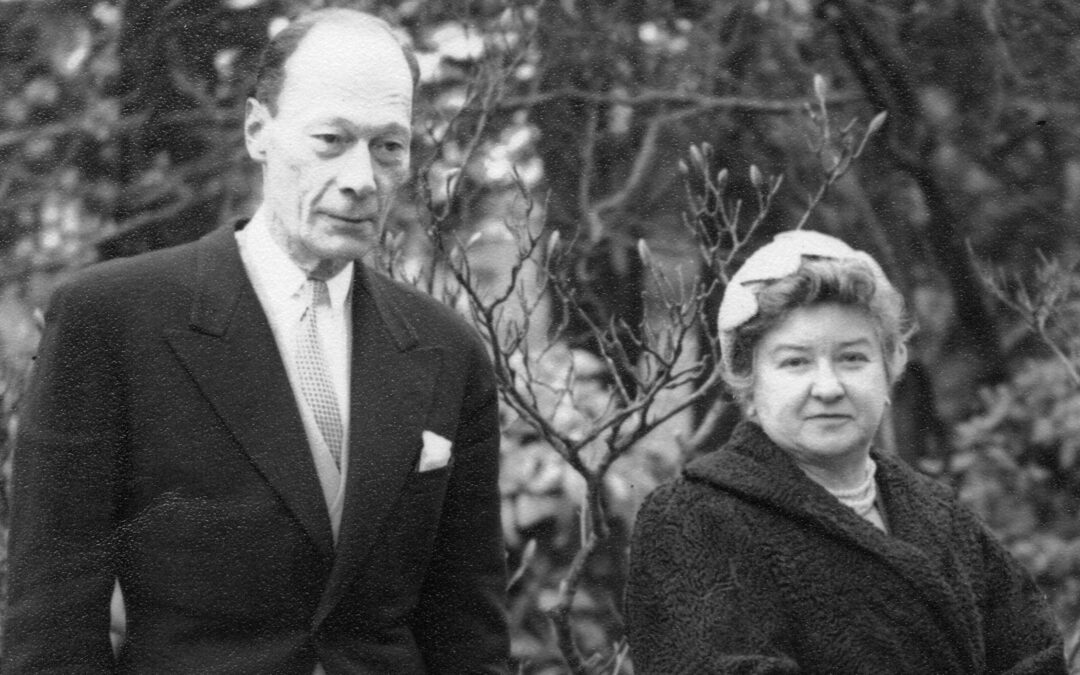By Juliette Bretan
A series of chance discoveries has revealed that a Polish diplomat in Istanbul helped hundreds of Jews flee Europe during the Second World War by providing them with certificates falsely attesting that they had Catholic heritage.
One of those impacted by the discovery is Bob Meth. Growing up in New Jersey, Meth says, he was the only person he knew “who had parents who weren’t born in the US”.
He was aware of some details of his family’s history: that his mother, Ellen, had survived the Holocaust and settled in America with her father during the war, bringing with them some documents, signed by a Polish diplomat.
The documents attested that the pair had Catholic heritage – but the name of the diplomat who signed them was unknown. “I don’t know if my mother went beyond wondering,” says Meth.
Ellen had been born Edwarda Tuska Wang in Kraków in 1923, and grew up in Rzeszów, where she lived with her parents, Szymon and Emilia, until the outbreak of war in 1939.
The family then fled to Lwów (now Lviv), which was under Soviet occupation, and Szymon began an urgent search for routes of escape. He was eventually able to obtain exit visas to leave for Turkey in July 1940, partially thanks to American tourist visas he and Ellen had previously acquired for a visit to the United States in early 1939.

Bob Meth’s mother and grandparents (personal archive)
Emilia, however, did not have an American visa, so remained in occupied Poland, asking Szymon to help their daughter escape Europe – and then try to help her once they were settled abroad.
Szymon and Ellen made it to Istanbul, joining thousands of Jewish refugees in neutral Turkey who, though safe there for the time being, were desperate to escape further from Europe. Ellen Meth’s post-war memoir, Kaleidoscope, recalls the tense situation in Istanbul:
Leaving Turkey and getting my mother out of Poland were my father’s main concerns. Like hundreds, thousands of others, we were safe in Istanbul but had no place to go […] we spent our days going from consulate to consulate, waited in endless lines just to get a visa application or to speak to some official without ever getting any encouragement; no country seemed to be inclined to offer us refuge.
A chance encounter
One day, in a chance encounter, Ellen and Szymon ran into the son of their former landlord in Rzeszów, a Mr Daniec. He explained that the Brazilian government was providing thousands of immigration visas for Catholic citizens of Poland.
To obtain one, he added, Polish Jews could try to receive a false baptismal certificate from the Polish consul, to attest that they had Catholic roots. The Wangs managed to do so. Szymon’s certificate claimed that his parents’ names were Josephus and Mary. “You’ll get the symbolism,” Meth adds, with a laugh.
The pair then passed on the message to other Jews in the community. Meth says that, until recently, as far as he knew “it was only my mother and some other people who they had referred” who had been helped by the consul.
In fact, it seems that the diplomat’s actions took place on a far larger scale than he thought – although it took years for his identity, and the real story, to be revealed.
Meth first began researching the identity of the diplomat in 2016, when he travelled to Istanbul. But efforts to find out more information were repeatedly delayed. “I didn’t pursue it as vigorously as I wish I had,” he admits.
Hundreds of documents
But after another chance encounter, the diplomat’s name was revealed. Scrolling through Twitter in spring of this year, the Polish ambassador to Turkey, Jakub Kumoch, spotted an image of a visa issued by a Polish consul in Istanbul during World War II, Wojciech Rychlewicz.
Then, four days later, a Polish diplomat working on relations with the Jewish diaspora telephoned Kumoch and told him about the documents belonging to Bob Meth. The diplomat explained to Kumoch that they had reason to believe they concerned Rychlewicz.
Kumoch compared the signature on the documents to the passport on Twitter and, after consulting with a criminologist, was able to confirm both belonged to the same man.
With a name, Kumoch was able to send one of his diplomats to the Central Archives of Modern Records in Warsaw to look for more documents. They found hundreds more papers signed by Rychlewicz that attested to the recipients’ Catholic roots.
Most of these were for individuals who had Jewish-sounding names, says Kumoch. Other contemporary sources indicate that there could have been thousands who received such documents.
Kumoch says that Rychlewicz’s actions therefore “saved many lives, but indirectly”. Although Turkey was neutral during the war, and Jewish refugees faced practically no threats there, the country was reluctant to admit large numbers of them. “Rychlewicz’s task was to help Jewish refugees leave Turkey as soon as possible and create space for others,” says Kumoch.
“By pretending that hundreds of Jews were Polish Catholics, he made the flow of refugees through Turkey much more effective,” continues Kumoch. “This way, Turkey could avoid pressure from the Germans, and many Polish Jews could leave German-held territory where their lives would be in danger.”
Operacja wymierzona była głównie w państwa obu Ameryk, które w latach 30. wprowadziły kwoty migracyjne i nie przyjmowały Żydów, ale także w brytyjską Białą Księgę, która de facto zabraniała imigracji do Palestyny. Żydzi wjeżdżali udając polskich katolickich uchodźców. 3/9 pic.twitter.com/ZfkrG9XaN0
— Jakub Kumoch (@JakubKumoch) December 11, 2020
“A hidden hero”
Rychlewicz himself – after serving in General Władysław Anders’s Polish army following his stint in Istanbul – ended up in London after the war, where he obtained British citizenship and died in 1964.
He never spoke about any of the documents he had signed during the war, says his granddaughter, Anna Whitty, who still lives in the UK. That made the recent discovery a big surprise.
“I’ve been very sort of humbled and shocked by the news,” she explains. “No one had any idea.”
After Rychlewicz settled in the UK, his family – like many Poles – decided to “just move on” from their wartime experiences, says Whitty. However, her grandparents were still very active in the Polish community, including continuing efforts to help displaced Poles after the war. Whitty’s grandmother was particularly well-known for her work finding homes for orphaned Polish children.
And in fact, Whitty adds, this meant her grandfather spent most of his life eclipsed by his wife’s actions. “He was that hidden hero,” she explains. “My grandmother was the one that everyone knew as a hero.”
Messages of “intense gratitude”
Thanks to another recent chance discovery, Whitty was able to shine more light on her grandparents’ life and work in Istanbul. The Rychlewiczes’ papers had ended up in the possession of a family friend.
Whitty says she was called “out of the blue” about a book within the collection. “It didn’t register with me,” she says, “But it turned out that it’s a visitors’ book, from my grandparents.”

Wojciech and Janina Rychlewicz after the war (Anna Whitty, personal archive)
The book revealed that the family had entertained many people during their time in Istanbul. In late 1939, “there was a sudden change in the tone of the messages”, says Whitty. “Rather than [saying people had] had a wonderful evening, it was [messages of] intense gratitude.”
Many were from musicians – several of whom had Polish-Jewish backgrounds. Among the messages was a note from 12 September 1940 by Polish-Jewish writer and lyricist, Marian Hemar:
Please believe me, as a writer by profession, I cannot write anything else – when I am really grateful and very moved by someone’s goodness and simple nobleness – but only: Thank you. Thank you. God bless.
Whitty says she only remembers her grandfather as a “someone we were all a bit scared of”, and learning the full extent of his help during the war left her with a feeling of “disbelief”.
“One of my first emotions was – this is a Schindler’s list type of story,” says Whitty. “My grandfather’s death certificate had him down as a clerk. For me, that’s such a sad and modest ending for someone [like this].”
A lasting legacy
But, with the recent discoveries, Rychlewicz and his legacy may become much better known. Meth, whose family were those helped by the diplomat, certainly hopes so.
His mother and grandfather, after receiving their false baptismal certificates, were able to get Brazilian visas and leave Istanbul. In October, they travelled to Damascus and Baghdad, and then on to India, where they stayed for six months.
In India, they decided to try their chances applying for American visas instead. After the applications were successful, the pair then travelled to Japan before sailing on to the US.
Emilia, Bob’s grandmother, remained stuck in Europe, despite the family’s efforts to help her escape with fake Nicaraguan citizenship papers. She ended up first in Bergen-Belsen concentration camp and then at Auschwitz, where she perished.
Meth believes that Rychlewicz, whose story has been hidden for years, now deserves to be commemorated. Though his actions “may have been less risky because Turkey was a neutral country…it was still quite a noble thing for a Polish official to obviously lie”.
“Anybody that went out of their way to help some Jews – they ought to be recognised.”
Main image credit: Anna Whitty, personal archive

Juliette Bretan is a freelance journalist covering Polish and Eastern European current affairs and culture. Her work has featured on the BBC World Service, and in CityMetric, The Independent, Ozy, New Eastern Europe and Culture.pl.




















